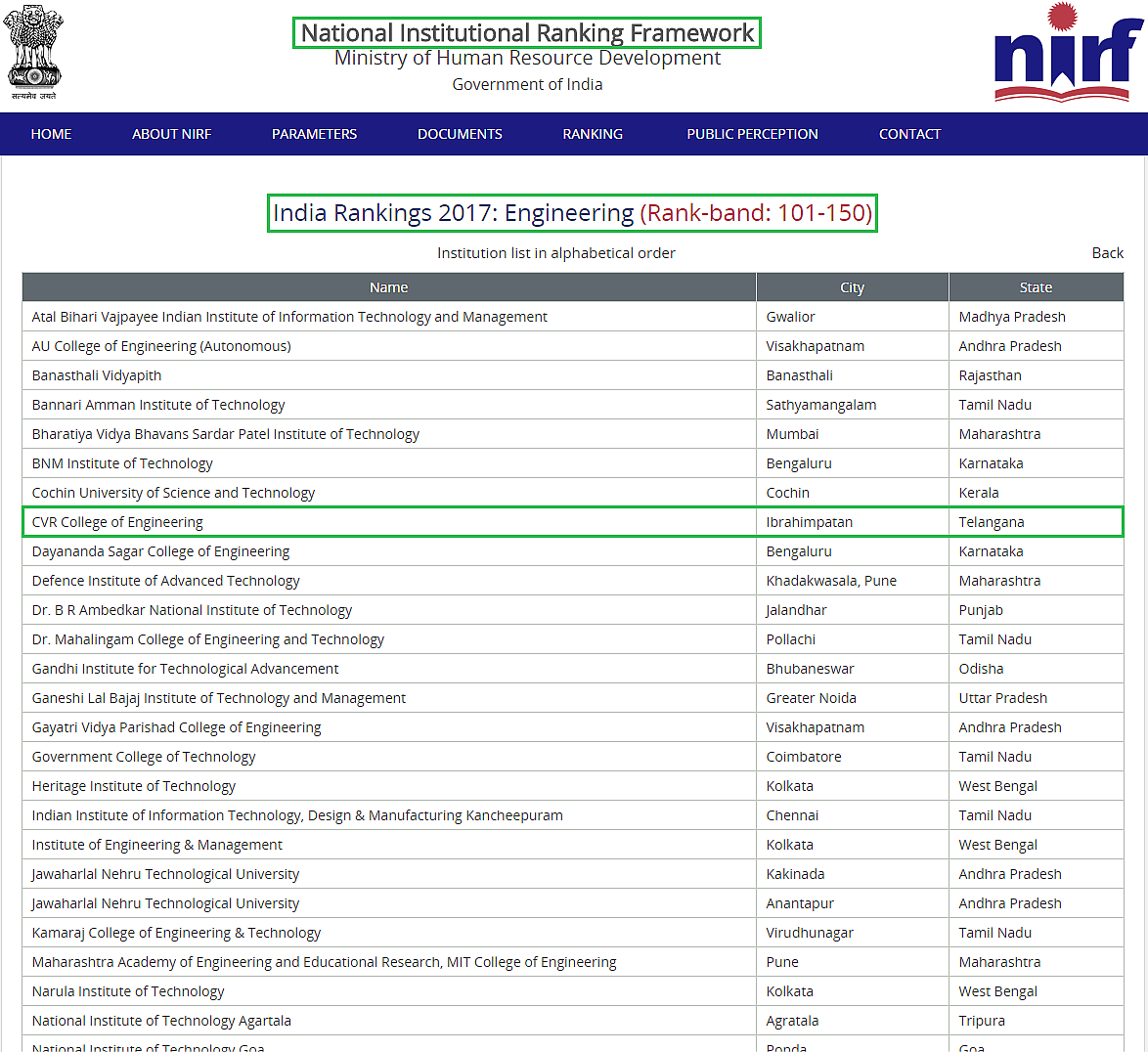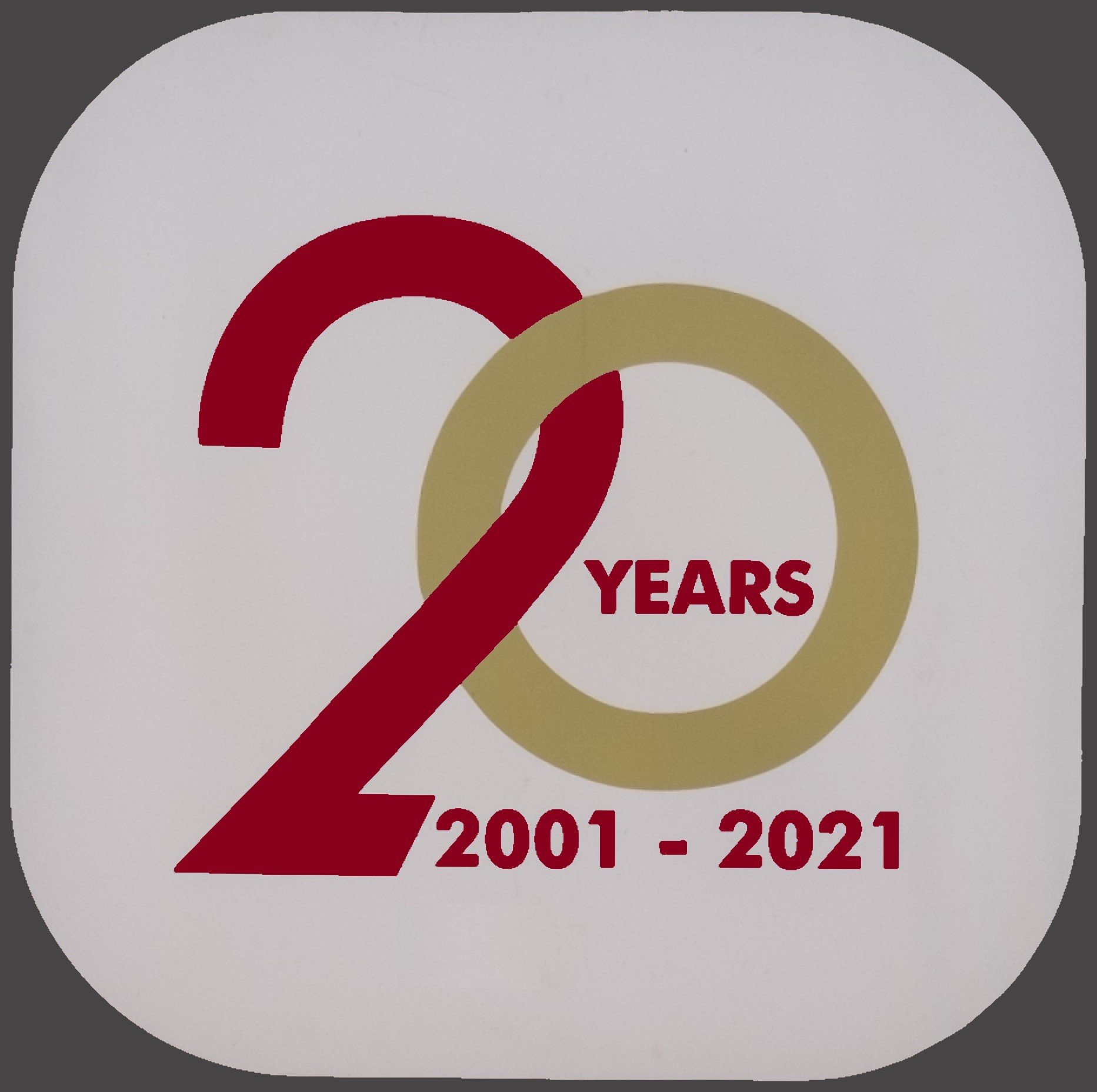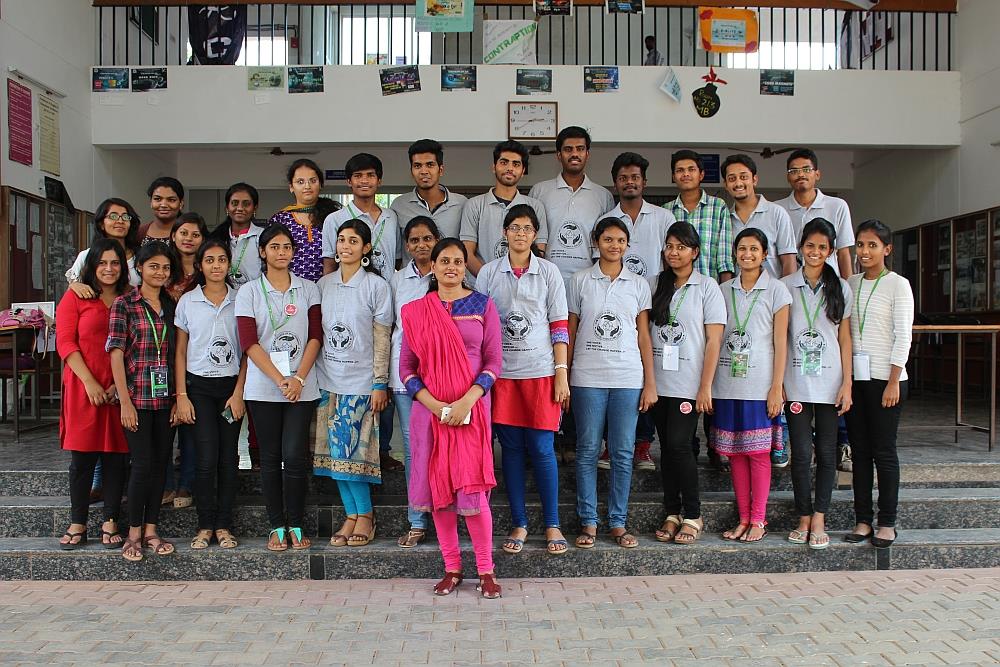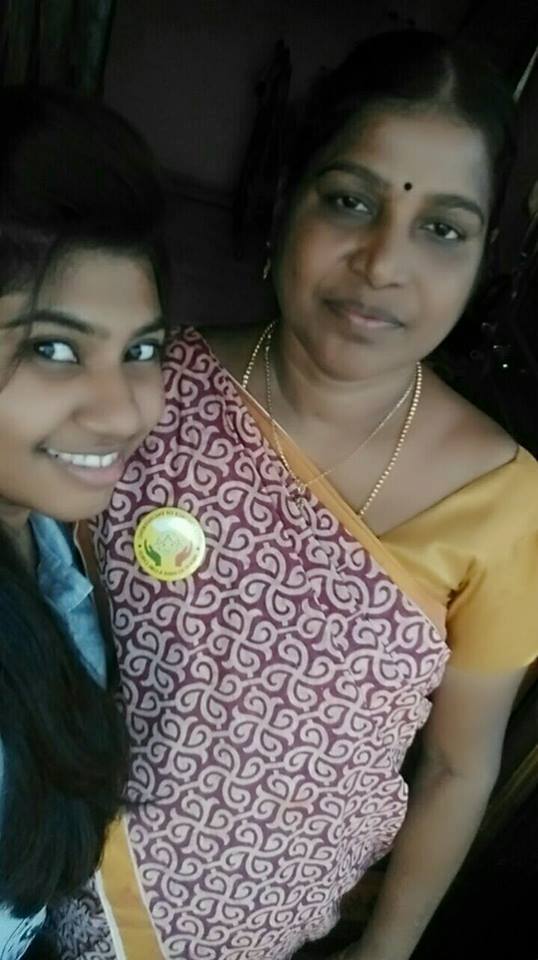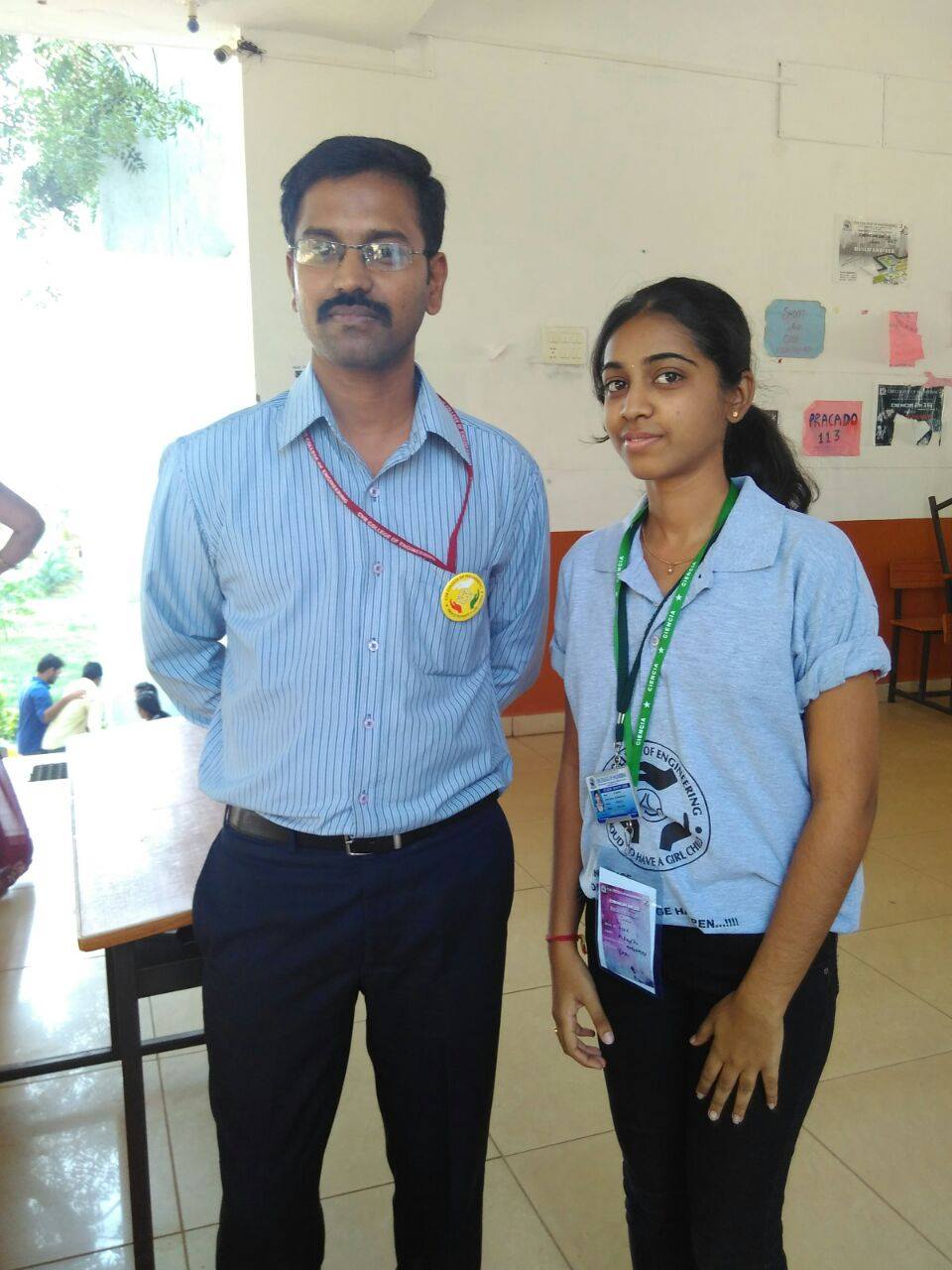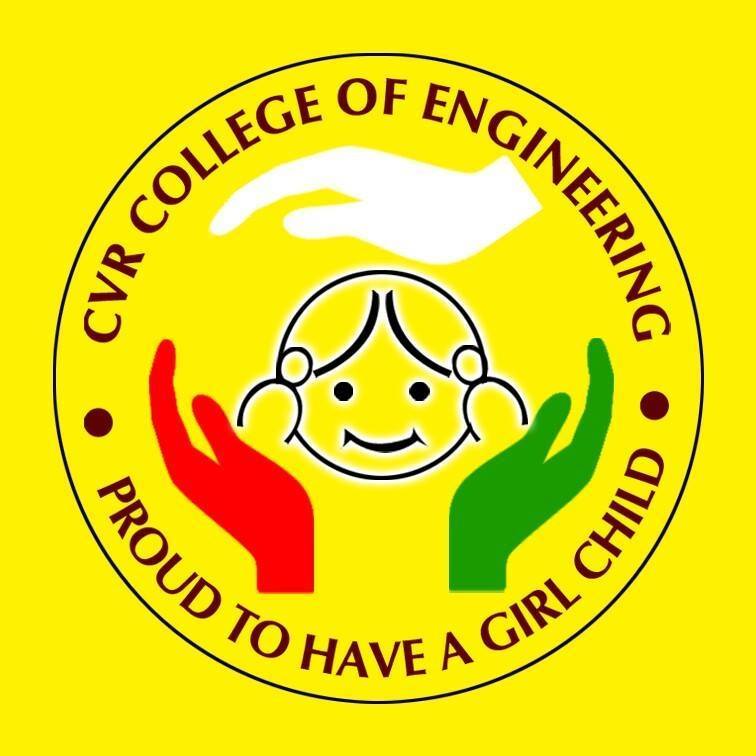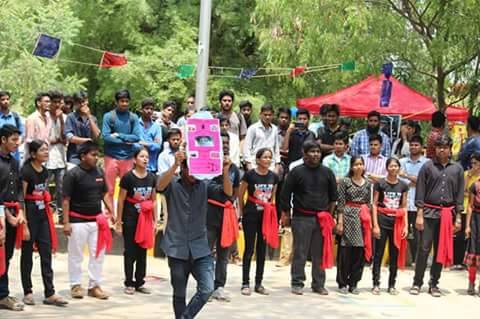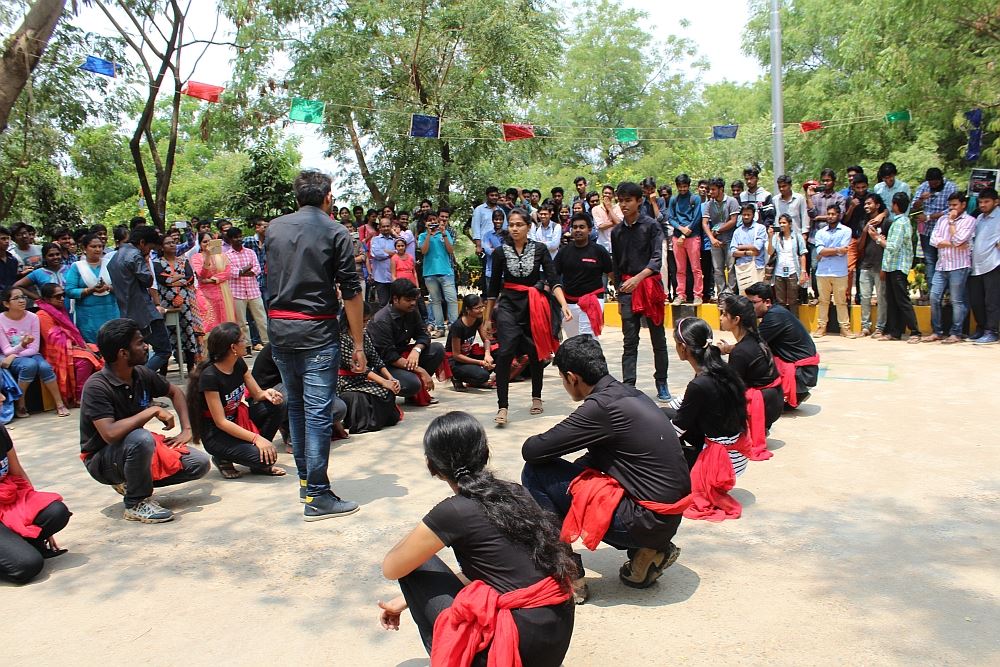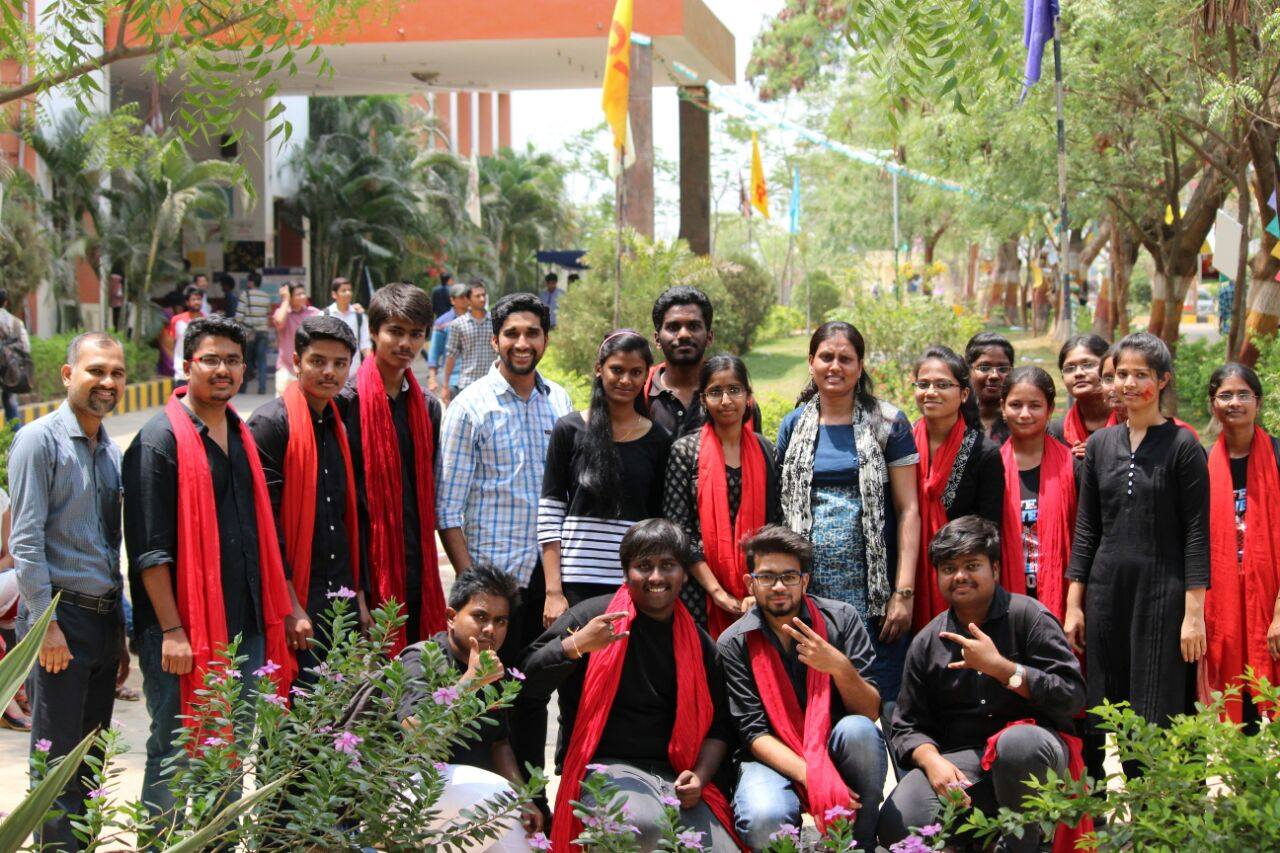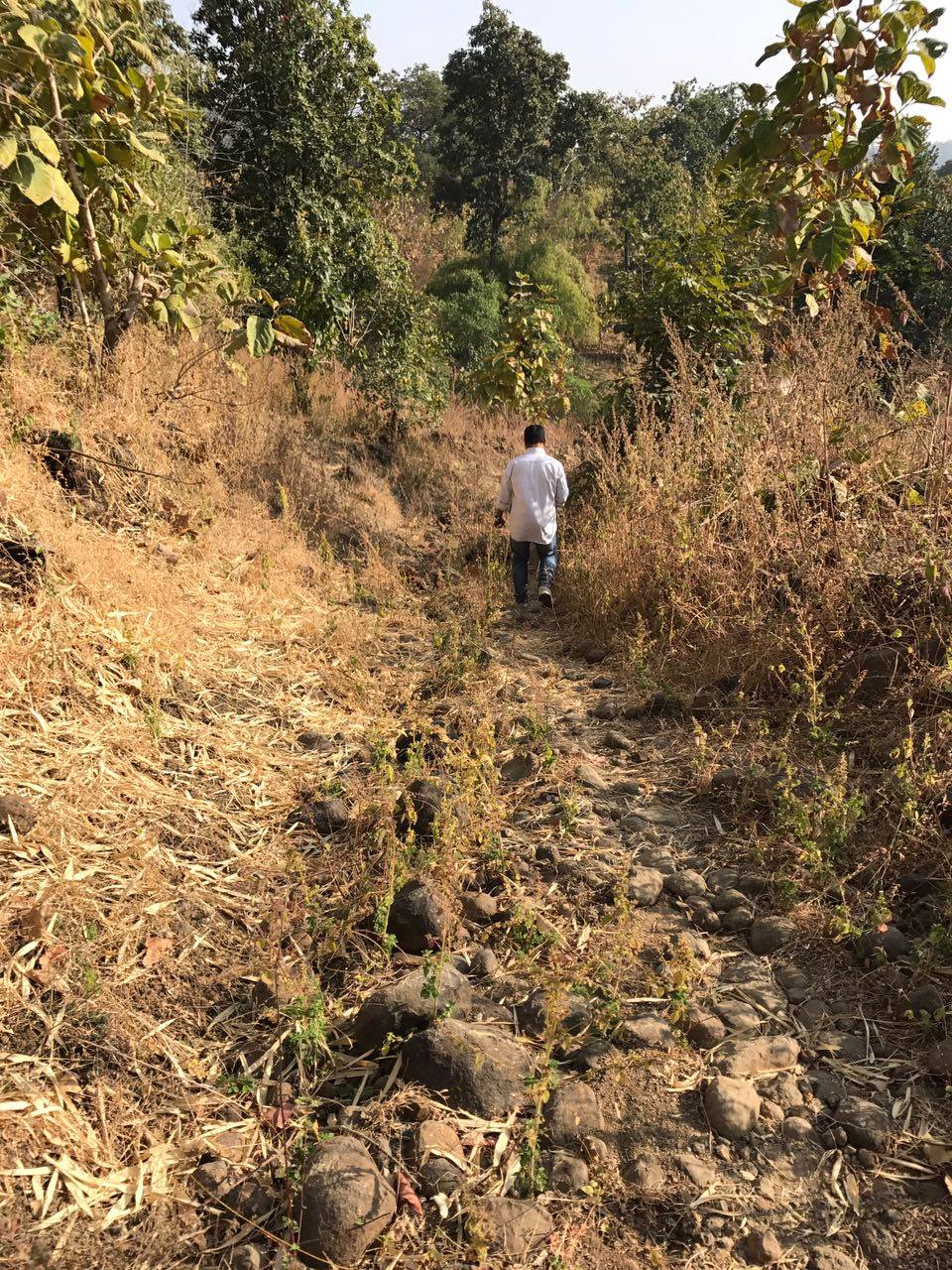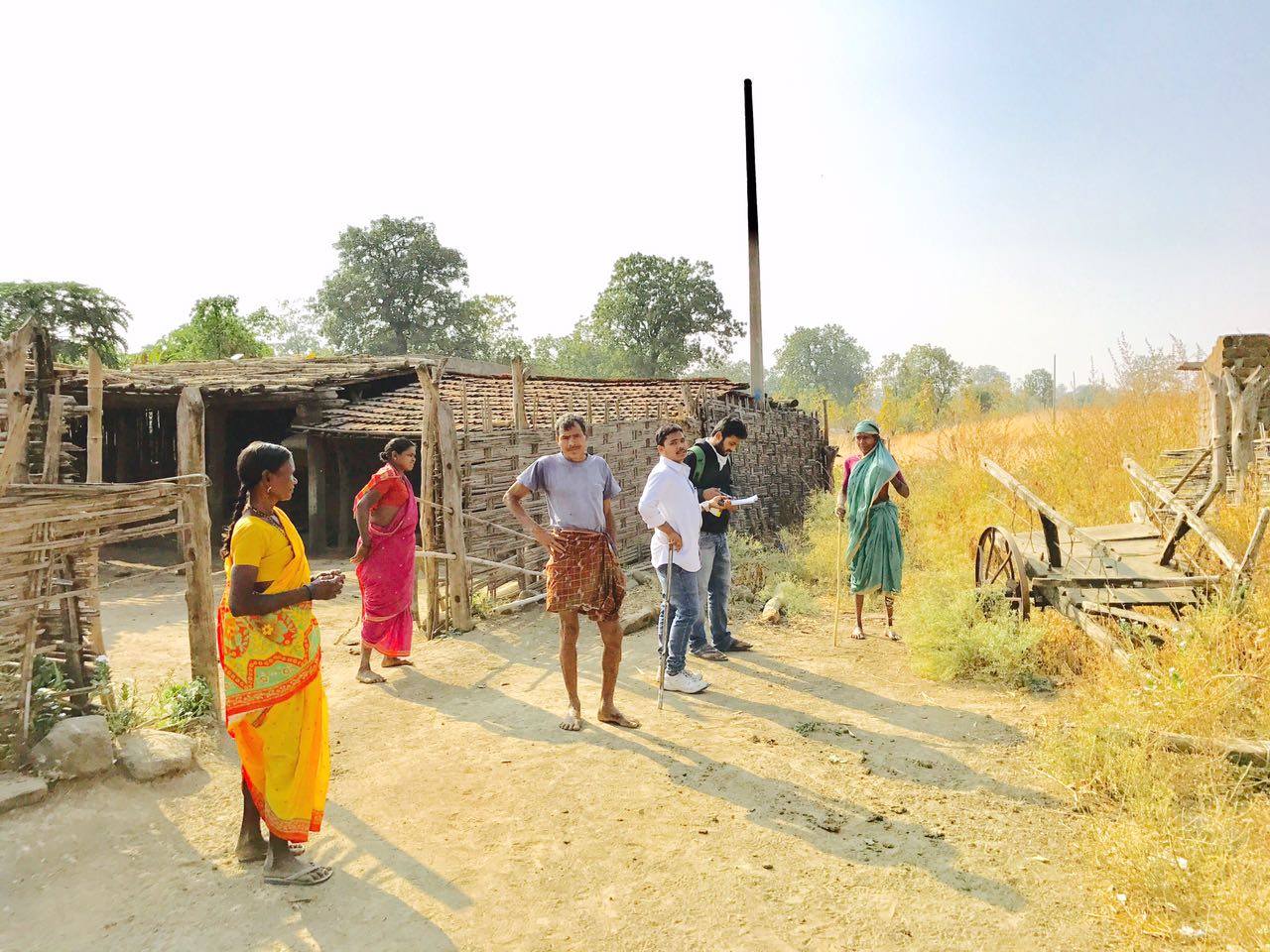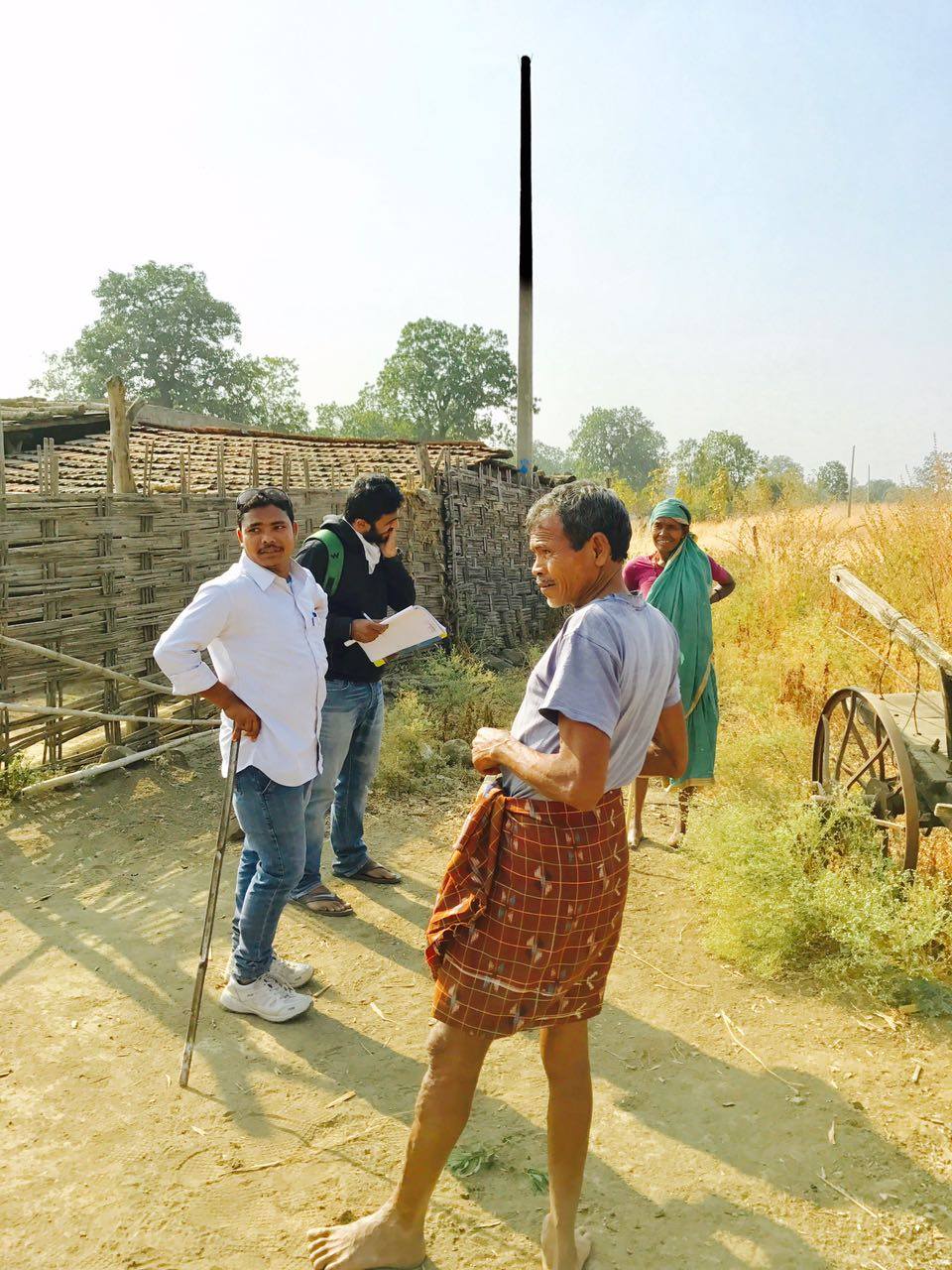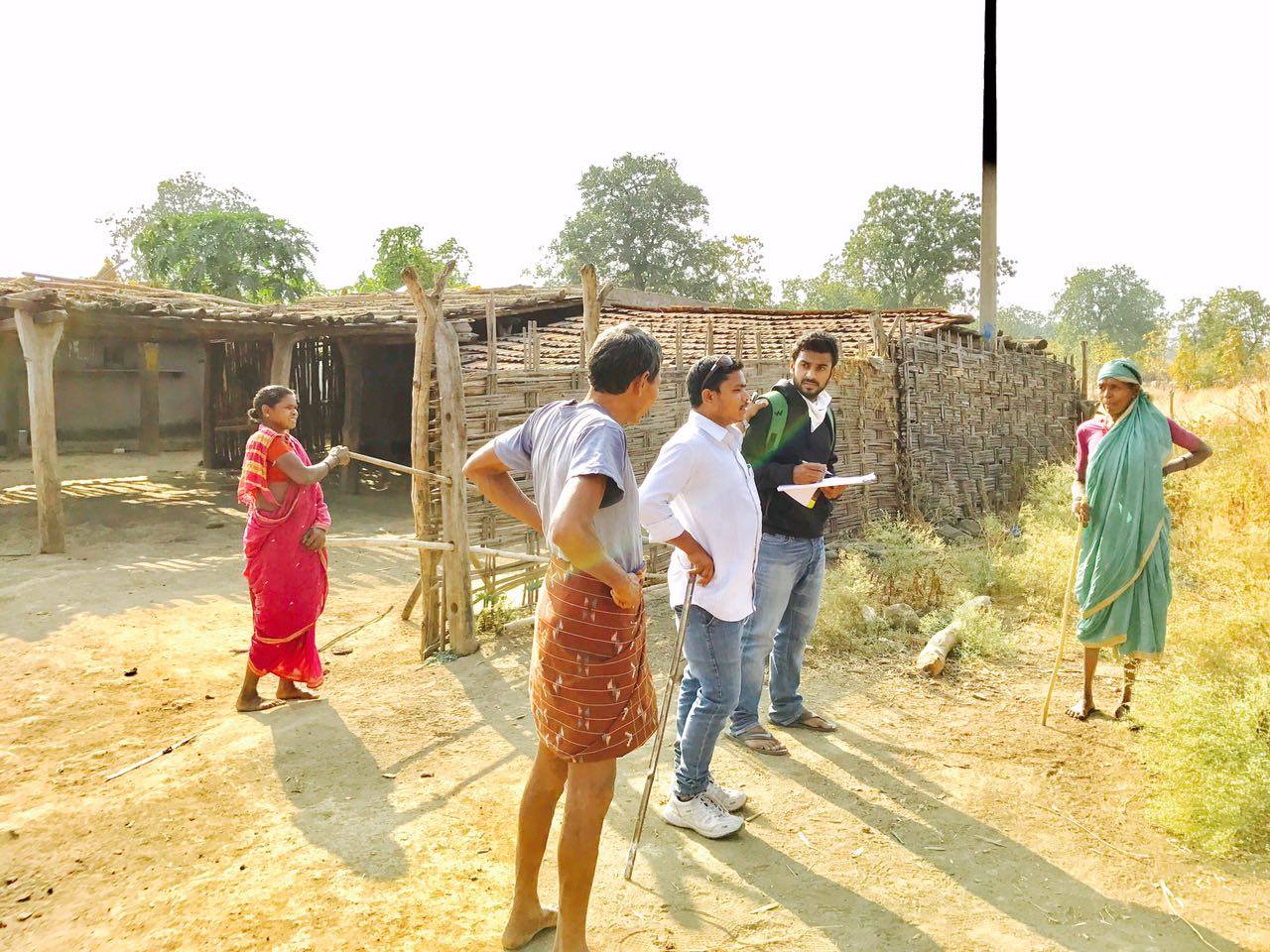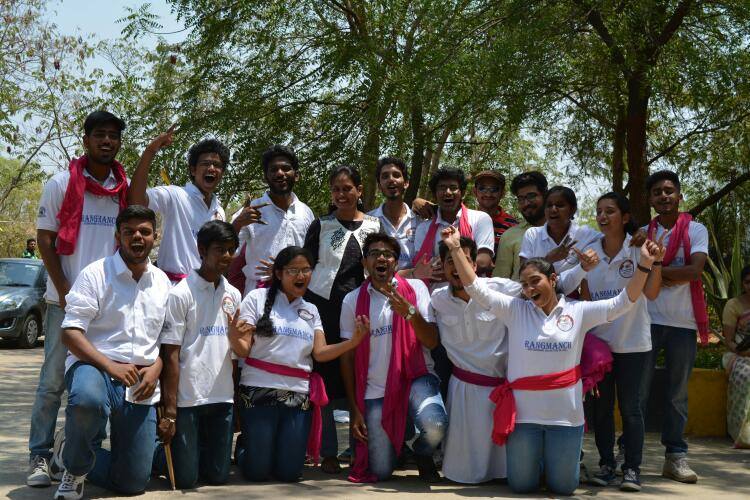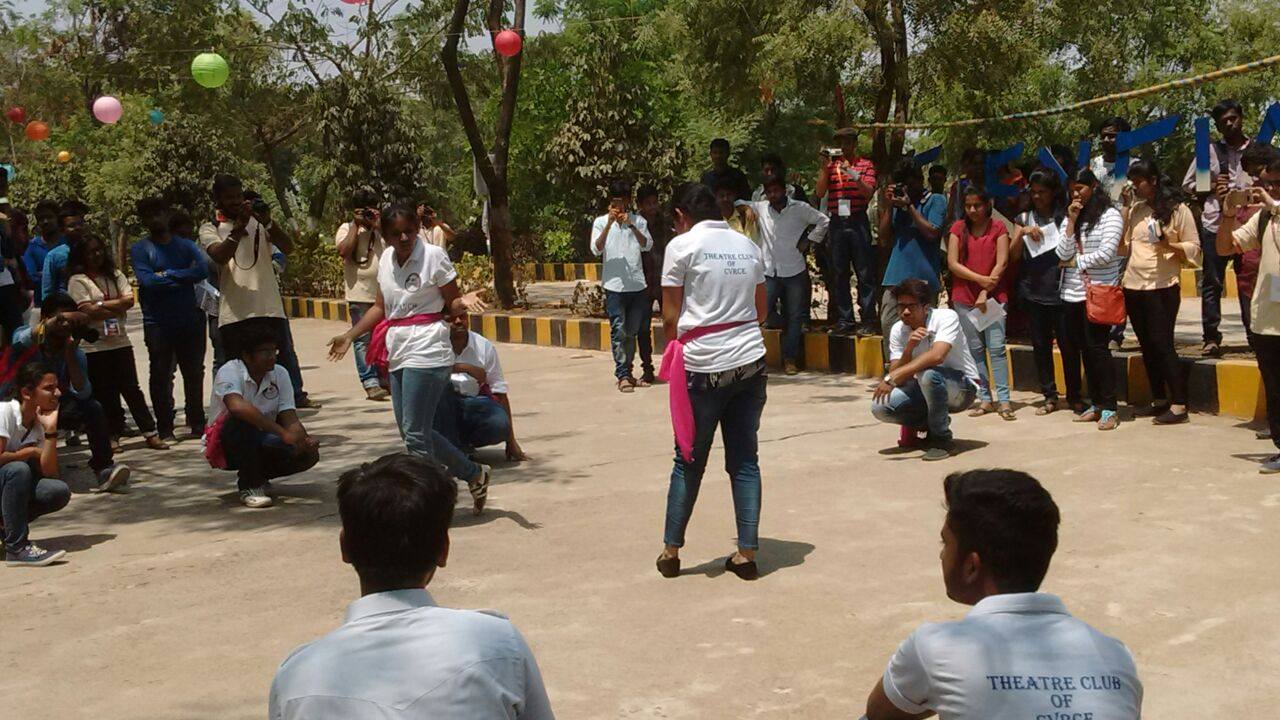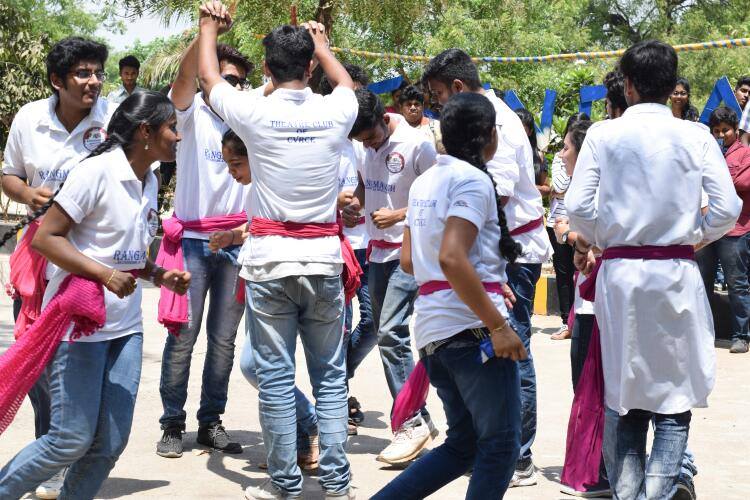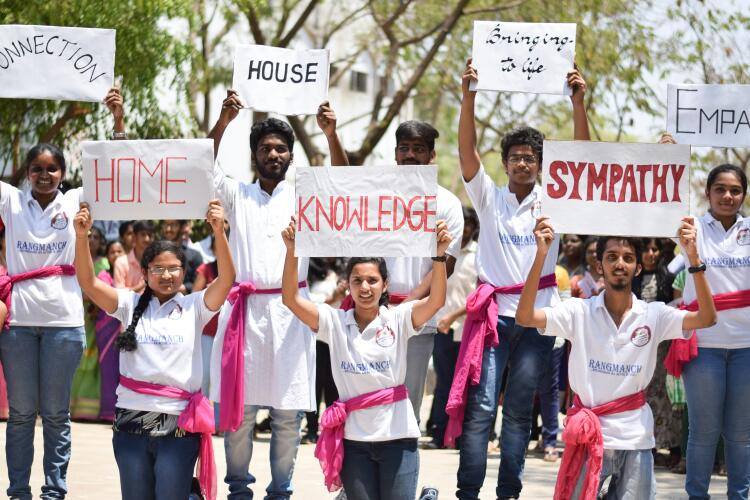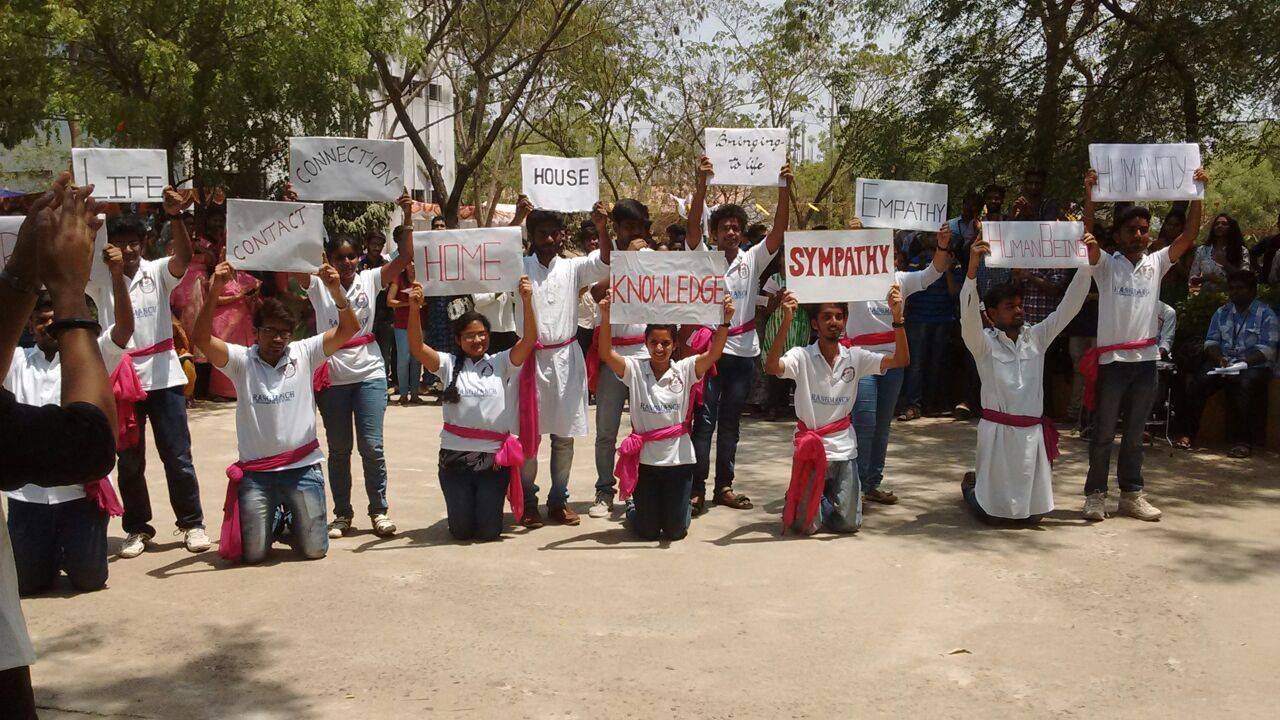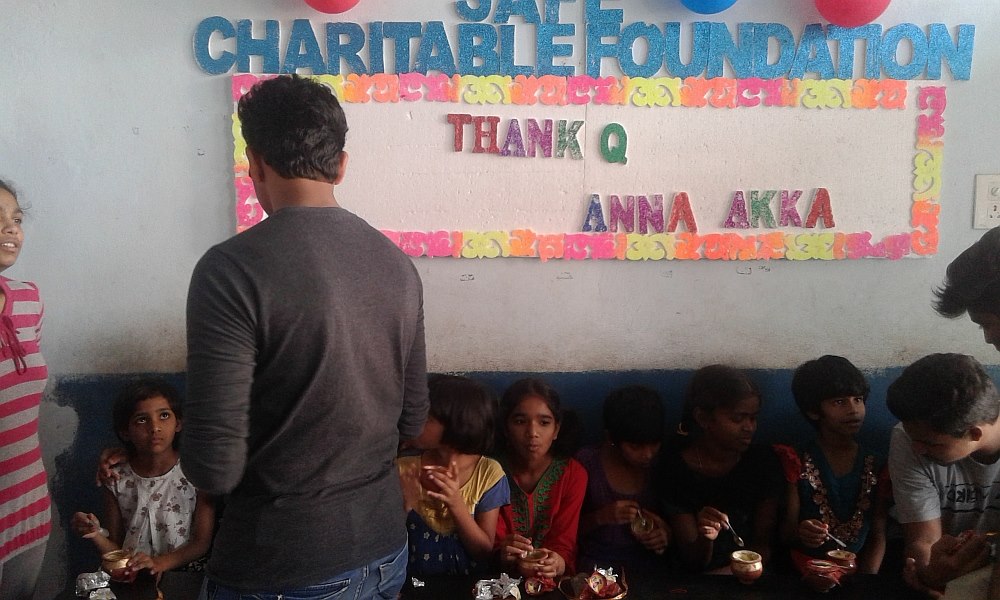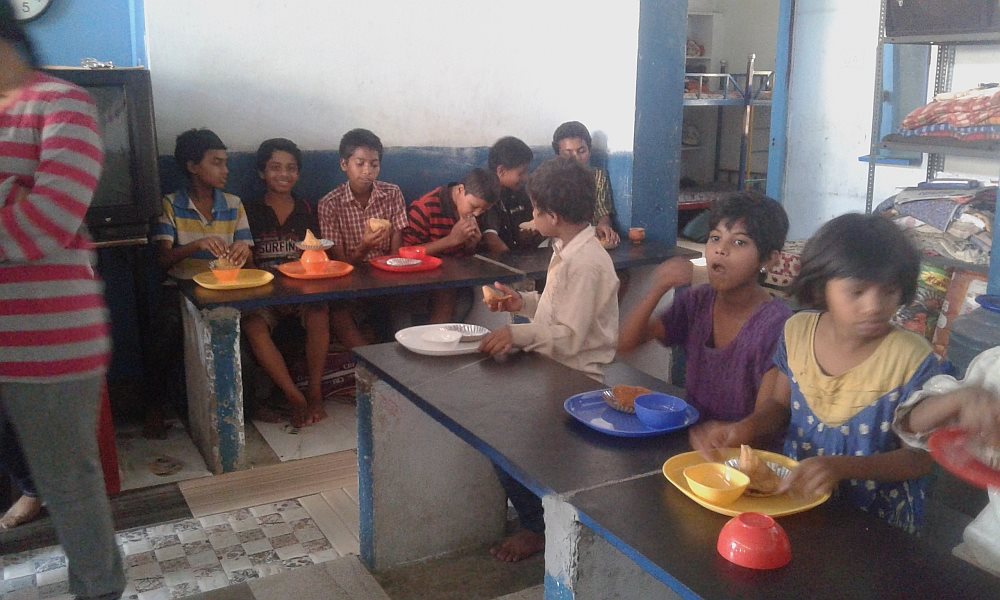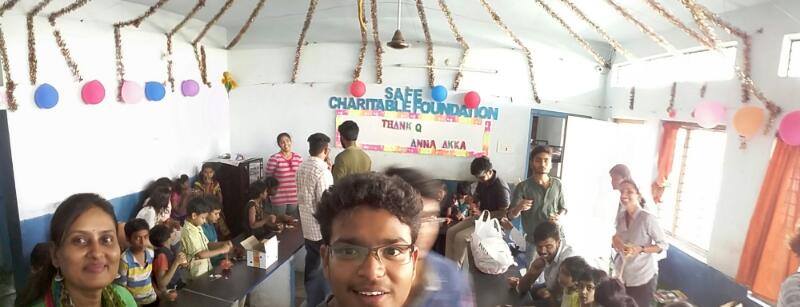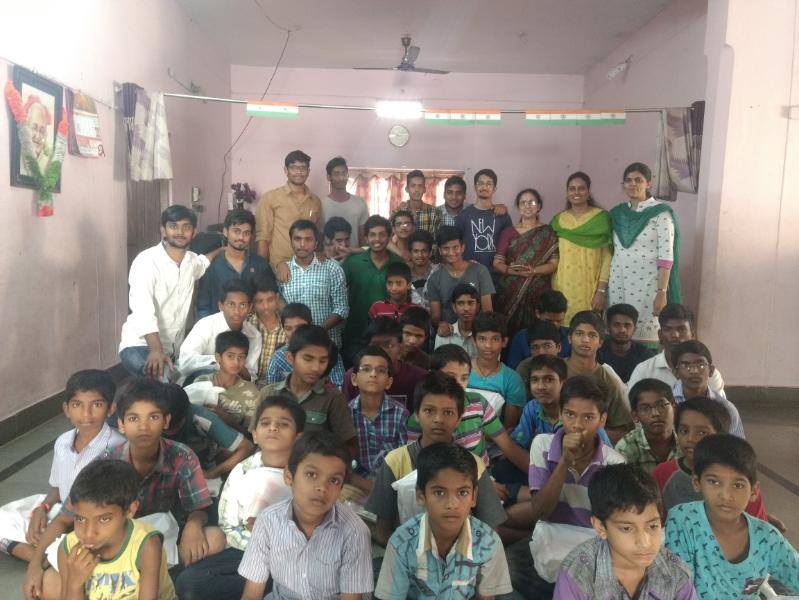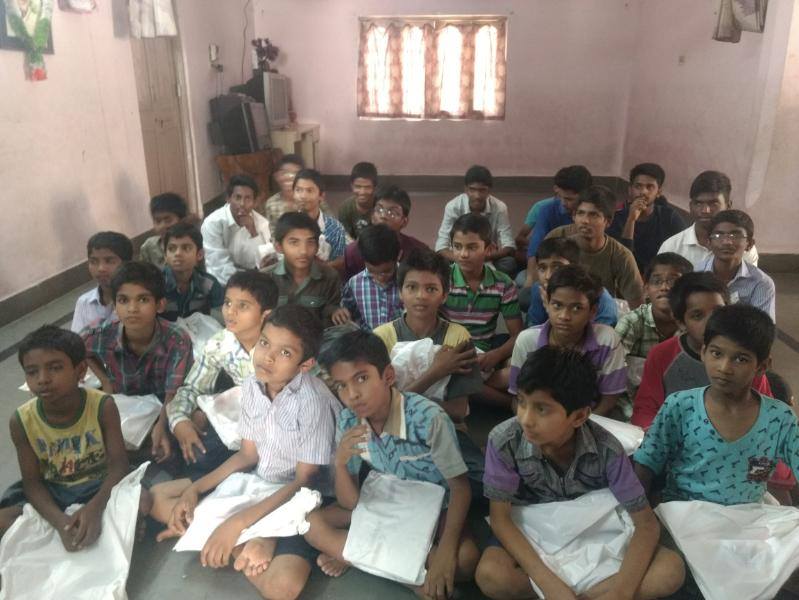Community Outreach
Our students are keeping pace with social issues and they are actively participating in creating awareness about social problems such as female feticide, old age problems, hardship of rural life, and development of the country without losing human values and feelings. Students come forward and present these issues in the form of campaigns, street plays, voluteer fund raising etc. They have started giving back to the society through these various activities in and outside the college.
2015: A Social awareness campaign “Proud to have a girl child” to save girl children by B.Tech. II Year IT-A students
2016: Street play “ Not against anyone but for someone”
(Street play on Gender Equality)
| Facebook video |
|
|
2017: 4K Run
On 26th, January, 2017, students of CVRCE, along with Street Cause NGO, participated in a 4K Run at People’s Plaza Necklace Road to raise funds for Lendiguda village in Adilabad district. This village is deprived of basic facilities like water. The residents of this village do not have any protection from wild animals. They live in a forest area where they have to share a source of water with animals.
2017: Street play “Thoda hai, thode ki zaroorat hai” at Ciencia
Human society can grow sustainably only when the meaning of being human is kept intact. Being human implies having feelings, sensitivity. We have been losing these human qualities in modern times. The street play “Thoda hai, thode ki zaroorat hai” appealed to people to retain the natural quality of being human which all of us possess.
2017: Visit to Safe Charitable Foundation orphanage home, B. N. Reddy, Hyderabad
|
|
2017: Visit to Tapasvi Orphanage home, Alkapuri Colony, Nagole Hyderabad
|
|
Vision of the Institute
To be a state of the art institution of engineering in pursuit of excellence, in the service of society.
Mission of the Institute
To excel in providing quality education at under graduate and graduate levels.
To encourage research and innovation.
To provide infrastructure and facilities to meet the latest technological needs.
To establish Centres of Excellence through active interaction with industry.
To nurture students towards holistic development with human values and ethics.

National Level Programming Contest “Smart India Hackathon’17”at CVR College of Engineering, Hyderabad on 1st and 2nd April, 2017
What is Smart India Hackathon?
The Government of India hopes to bridge the digital divide in our country and further promote digital literacy in order to make development a comprehensive mass movement and put governance within everyone’s reach in India. In order to work towards this vision, AICTE under aegis of MHRD and in collaboration with i4C, Persistent Systems Ltd., UGC, NASSCOM, RambhauPrabhodiniMhalgi, SumaSoft Pvt. Ltd, Deloitte, ACM India, NIC, and MyGov proposed the Smart India Hackathon 2017, a unique computer programming competition to identify new and disruptive digital technology innovations for solving the challenges faced by our country. With this initiative, the aim was to institutionalize a model for harnessing the creativity and technical expertise of 3.0 + million students for direct benefit of our nation. Besides this, several union ministries agreed to be partners in this initiative.
Launched on Nov 9, 2016 at the hands of Shri Prakash Javadekar, Hon’ble Minister for HRD in New Delhi, ‘Smart India Hackathon 2017’ harnesses creativity & expertise of students, builds a funnel for ‘Startup India, Standup India’ campaign, crowdsources solutions for improving governance and quality of life, and provides an opportunity to citizens to provide innovative solutions to India’s daunting problems.
The 36-hour Grand Finale was held on April 1& 2, 2017 at 26 nodal centers simultaneously. Winners stood to get cash prizes and a chance to be part of the NASSCOM’s “10,000 Startups” program.
- Smart India Hackathon 2017 was the first massive scale hackathon initiative in India and unprecedented in the nation’s history
- For the first time ever, 29 different government ministries and departments came together and posed 598 problem statements to 30 lakh technical students from India.
- During Smart India Hackathon 2017, for the first time ever 10000+ technical students worked for 36 hours nonstop to build tools that the nation will benefit from. The digital solutions that will be created will improve the functioning and governance of different government departments. There cannot be a better example of using our demographic dividend for building our nation. Students are a medium of change and if a large number of students come together, we will bridge the digital divide.
Some Quick Analytics to draw attention to

- 7531 entries were received from 2100+ engineering/technology colleges from across India.
- Each entry was submitted by group of 6 students which means there were 40,000+ students as participants
- Maximum responses were received for problem statements from AICTE, Ministry of Road Transport & Highways, Ministry of Railways, Ministry of Rural Development, Ministry of Tourism, and Ministry of Civil Aviation
- Maximum entries were received from Tamil Nadu state, followed by Maharashtra
- 300+ submissions were received under ‘Students’ Voice’ sections that invites ideas for problem statements not proposed by any of the ministries.
- A total of 17 Facebook live talks were held regarding Smart India Hackathon 2017
- A total of 26 Workshops were held to encourage students in every corner of India
- A total of 11 Massive Online Training Sessions (https://www.mygov.in/home.talk) on various topics were held to train the participants to code the very best at the Grand Finale.
For more details, visit www.i4c.co.in
Smart India Hackathon’17 was historic for CVR College of Engineering, Hyderabad as it was the first ever institute in Telangana to be one among 26 nodal centers selected in India. The college hosted this mega event wherein 41 teams with around 250 students, along with the mentors, and 137 girls from various institutions across India participated to showcase their skills and developed technological methods for the welfare of specially abled people.
On 1st April, 2017, CVR College of Engineering held the Inaugural Ceremony of ‘Smart India Hackathon’17’ at 7 a.m. The Honorable Minister for Human Resource and Development, Shri. Prakash Javadekar inaugurated the world’s biggest digital movement through video conference across all the nodal centers in India. He emphasized on “New India-Digital India, New India-Start up India, New India- Make in India and New India-Innovative India”, where every small innovation will bring difference in the lives of people. He congratulated all the participants who took initiative for the world’s biggest Hackathon. Shree Javadekar appealed to the participants to take this Hackathon as an opportunity to make friends and connect throughout their lives as this is a festival of thoughts than a competition. The Honorable Prime Minister of India, Shri. Narendra Modi motivated and lightened up the spirits of the participants at 10p.m on 1st April, 2017.
The inaugural function hosted by the college witnessed domain experts, senior professionals from IT industries and people from different ministries as judges for Hackathon’17. The Chief Guest of the function was, Prof. A. Venugopal, Vice Chancellor, JNTU-Hyderabad. Mr. B. V. Ram Kumar, Deputy. Director, DEPWD, NIEPD, Mr. Bala Murugan, South Central Regional Officer, AICTE and Mr. Yogesh Deshpande, Practice Head, GS Lab, were also the part of this event.
The Chairman of the college Dr. C. V. Raghava briefed about Hackathon as the beginning for providing solutions to make a better future. He told the students that they should take pride in being a part of the Grand Finale of this unique Hackathon. He also took pride in mentioning that CVR College of Engineering was the sole nodal center in the new state of Telangana. Dr. Raghava wished all the participants a great success.
In his address, the Chief Guest, Prof. A. Venugopal Reddy stated that Smart India Hackathon’17 was a great event for the entire country. He complimented NASSCOM and AICTE who encouraged young minds who geared up to go for the innovative applications. He congratulated CVR College of Engineering which imparts quality education and is hosting this grand event. He mentioned that this Hackathon is unique in its “massiveness and utility”.
The principal of the college, Dr. K. S. Nayanathara, formally welcomed all the participants from various parts of the country, colleagues & students. She appreciated the active participation of the students and the young talent to support the Department of Empowerment of Persons with Disabilities.
The ambience was quite aesthetic as all the focused minds of the country were gathered here to present their innovative ideas to combat the real-time challenges of our nation. The energy and enthusiasm portrayed by one and all was contagious and overwhelming. The campus was brimming with positivity and hope for a better future.
Valedictory
The second day of the world’s biggest hackathon witnessed the same amount of energy even after 24 hours. The Hon’ble Prime Minister of India, Shri. Narendra Modi went live on air to lift the spirits of all the participants across all the nodal centers at 10pm IST on April 1st. He shared his vision of “New India”, the youngest country in the world with 65% of the youth population. His “My Gov” had identified 500 problem statements from various ministries across the nation and chose youths’ contribution in providing innovative solutions for Digital India. He kindled the spirits of the youth to ignite the sense of New India amongst them. He shared his vision to see that the country would no longer be perceived as demographic dividend but as a development dividend. The Prime Minister of India also mentioned that this vision would become a reality in a few more years keeping in mind how the youth of the nation strives to be employment providers rather than employment seekers. He appealed to the youngsters that the journey of innovation should not halt here, as an idea may turn into a million dollar one or help a million lives. The PMoI concluded by stating that all the Indians must pursue New India like the way we pursued Independence.
CVR College of Engineering was the nodal centre for the Empowerment of Persons with Disabilities. The young innovators worked on various applications which would bring solutions to the challenges faced by specially-abled people on a daily basis . They made a lot of contributions in the areas like faster and better training for visually impaired people, speech to multilingual gestures, scholarship management, better public transport system, advanced ticket vending machine and other assistive tools for hearing and visually impaired people to bridge the digital divide.
The late hours of day one had many things happening to pep up all the participants. The excitement in the air continued till the wee hours of the night. CVR College of Engineering arranged “Open Mic”, where participants came up to the mic, sung songs and danced to popular tunes, rejuvenated themselves by venting out the stress and pressure built up after the hectic day. All the students from different parts of the nation coming along with each other together and introducing themselves and exchanging ideas was surely a sight to see, showing how the youth of the country comes together to bring change.
CVR College of Engineering as the nodal centre had three winning teams. The winner was Black Pearls, from AD Patel Institute of Technology, Gujrat, I runner up - The Fizians, from ITM Group of Institutions, Madhya Pradesh, II runner up – Team Hasta, from RV College of Engineering, Karnataka. These teams were awarded the prizes by the National Organising Committee. The prize for the III runner up, Nest from Dayananda college of Engineering, Karnataka and IV runner up, Innovative Group, Atmiya Institute of Technology and Science, Gujrat were announced by CVR College of Engineering. The nodal centre is also issuing legally valid (as per the Information Technology Act) Digitally Signed participation certificates, with photos to all the attendees.
The chairman of the college Dr. C.V. Raghava thanked the PMoI for providing an open platform for the students, AICTE for selecting CVRCE as the nodal center, the Chief Guest, Mr. BVR Mohan Reddy, Executive Chairman, Cyient. He also thanked the judges for being a part of this initiative, Faculty and student volunteers.
The Chief Guest for the Valedictory function at CVR College of Engineering was Mr. B.V.R. Mohan Reddy, Executive Chairman, Cyient. He congratulated all the participants and motivated them by saying that their participation itself in the mega event itself was the biggest achievement. He also congratulated the government for starting this initiative of “Digital India”. He said only digital connectivity will connect the entire world in the future. He gave five points tips for the all the participants to practice in their lives. First, to have open innovation while making sure the participation of common citizens. Secondly, to learn from your mistakes. Thirdly, to challenge status quo. Fourthly, to learn to be persistent and finally to learn to work as a team. He advised the participants to cultivate multidisciplinary skills. He mentioned that he sees himself as the past and sees his future sitting in front of him with smiling faces and shining eyes where the future is safe.
The vision of New India, Smart India, Digital India seemed closer to realization after the closure of the 36-hour non-stop event, Smart India Hackathon 2017. This unique event encouraged many young minds to convert their knowledge into skills that would solve many crucial challenges facing our country.
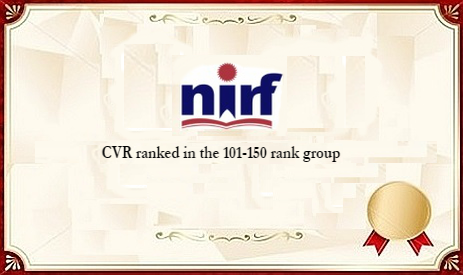
CVR is rated among the top 4 private engineering colleges in Telangana
(Only one college from Telangana in the top 100 and CVR along with two other colleges in the 101-150 ranks)
CVR is rated among the top 25-35 private engineering colleges in the entire country
(Only 24 private engineering colleges are in the top 100 ranks)
Our vision of being in the Top 5 of Telangana has come true and is endorsed by none other than MHRD/NIRF of the Government of India. Many congratulations !!! and thanks to the faculty, staff, students, employers, industry partners, alumni, affiliating university (JNTUH) and other stakeholders.
